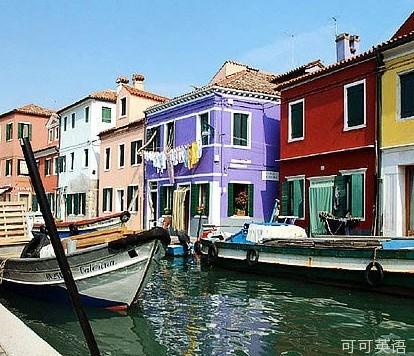(单词翻译:单击)
Books and Arts; Book Review;The future of Italy:Long life
文艺;书评;意大利:路漫漫其修远兮,还需上下而求索
Good Italy, Bad Italy: Why Italy Must Conquer Its Demons to Face the Future. By Bill Emmott.
比尔·艾默特的新作,《意大利的明与暗:为何意大利必须先涅磐后重生?》
Even after the latest euro rescue in Brussels, Italy remains a time bomb. Its public debt of close to 2 trillion ($2.5 trillion) is the world's third biggest, making it too big to bail out. It has lost competitiveness. And its economy is stagnant: between 2001 and 2012 GDP shrank, a worse performance than any other rich country. Fortunately, as Bill Emmott notes in this book, Italy has since last November had a technocratic cabinet led by Mario Monti that is the country's first reforming government in years.
欧元区最新一轮的救助措施,并没能改变意大利危机重重的局面。它的国家债务高达2万亿欧元(2.5万亿美元),位列世界第三,这使得其摆脱困境的可能性微乎其微。意大利已经无竞争力可言,国家经济呈一片衰败之势。2001年至今十年来,意大利是GDP增长最缓慢的发达国家。幸运的是——艾默特在书中指出——自从去年11月,新任总理马里奥·蒙蒂组建了新型技术官僚内阁,这是意大利多年来首次政府改革。
Mr Emmott, who was editor-in-chief of this newspaper from 1993 to 2006, has made Italy one of his specialist subjects, inspired partly by libel battles with Mr Monti's predecessor, Silvio Berlusconi. His excellent book is an updated English version of one published in Italian in 2010 under the title “Forza, Italia” (a pun on Mr Berlusconi's party and a football slogan, meaning “Go! Italy”). His thesis is better described by the new title: there are in reality two Italys.
艾默特,原《经济学人》杂志主编(1993~2006年)。意大利前总理布卢斯科尼对自己继任者的诽谤,一定程度上激发了艾默尔的兴趣。意大利已经成为他的一项独特研究课题。艾默特的精彩书作,原版为意大利文,出版于2010年,题目为“加油,意大利”。此次发行的是英文更新版本。其实艾默特的观点用下面这个标题会更精确些:事实上,存在着两个意大利。
This is often said of the north and south. Last year's 150th anniversary of Italian unification saw acid remarks about its having divided Africa, not united Italy. But Mr Emmott's division is not this one. Rather, he finds good and bad all over the country. On the good side he cites cases such as Mr Monti, young entrepreneurs, strong manufacturing (Italy is second only to Germany in Europe), a revitalised Fiat and Turin. On the bad, he offers Mr Berlusconi, organised crime and corruption, the public sector, red tape and Naples.
意大利的南北之分,由来已久。在去年的意大利统一150周年纪念日,即有一种尖刻的言论称:意大利不该统一,而该分裂。然而艾默特并未从传统意义上进行划分,而是从国家整体层面上发现了意大利的光明与黑暗面。光明面,他拿蒙蒂、年轻的企业家们、强大的制造业(欧洲国家中仅次于德国),复兴的菲亚特和都灵为例。黑暗面,他则主要列举了布卢斯科尼、黑社会组织、腐败、崩溃的政治系统、繁文缛节和那不勒斯的困境。
His story is supported by lively anecdotes of the people and firms he meets on his travels, many of them in the course of making a documentary film. It is refreshing to read so much that is positive about Italy amid the pervasive gloom: the fight against organised crime in the south, the exporting power of family firms in the north, the impact of Mr Monti's reforms. The author finds plenty of reasons for hope.
艾默特的讲述,辅以了他在旅途中见闻的生动轶事,其中许多逸闻趣事还制成了纪录片。在意大利深陷阴暗迷雾之时,能够读到意大利的光明面,实在让人耳目一新:南方对于黑社会的反击,北方家族企业出口贸易的实力,蒙蒂改革的功效等。作者的分析,让人们有理由对未来充满希望。
Yet overall his book seems a touch too optimistic. Mr Monti is being as bold as he can, but he has lost popularity, some of his reforms have been watered down and his ability to do things is waning as next spring's election approaches. The anti-mafia movement in Sicily is heartening, but organised crime has spread to the north as well. Many young Italians are talented and hard-working, but too many deploy their talents abroad rather than at home.
但是,总体来说,艾默特稍微有点乐观了。尽管蒙蒂已经竭尽全力去拯救糟糕的局势,但是当初的高支持率已然不再。新政府所进行的部分改革措施被打折扣。同时,在明年大选即将到来之际,蒙蒂正在逐渐丧失他的影响力。一方面,是西西里的“打黑”运动不断升温,一方面,是黑社会已经悄悄往意大利北部蔓延。大批的年轻人们富有才干,工作勤奋,但都在往国外谋求发展,而非报效祖国。
Above all, the deep structural failings of Italy—an inefficient public sector, a poor demographic outlook, lousy universities, a calamitously slow judicial system—will take years to put right. The euro crisis has shown the urgent need for reforms, but by stunting growth it has also made them harder. And Italy has few liberals who genuinely believe in reform.
总之,意大利结构上的深层次症结——失效的政治系统,老化的社会人口,没落的公立大学,效率奇低的法院系统——所有这些,都需要很长的时间去一一解决。欧元危机已经昭示了改革的迫在眉睫,然而滞缓的国内发展困境又让改革举步维艰。如今在意大利,原本拥护改革的人,现已所剩无几了。
Early on Mr Emmott notes the spooky parallels between now and the early 1990s, when Italy's economic problems first became apparent. A promising start then turned into 20 wasted years, largely because of Mr Berlusconi's entry on to the political stage. The media mogul's era may be over (even that is not certain). But new populists are rising up, and the next election could be messy. Italy has yet to find its next saviour.
在书的开头,艾默特即点明了目前的状况和上个世纪90年代初之间存在的不可思议的相似之处。原本是充满希望的开始,却因为布卢斯科尼在政治舞台的出现,转入了几乎停滞的20年。这位传媒大亨的时代也许是该结束了(尽管还不能确定)。新的平民之星正在冉冉升起。即将到来的选举定不会平静。意大利仍要继续前行,寻找下一个救星。


